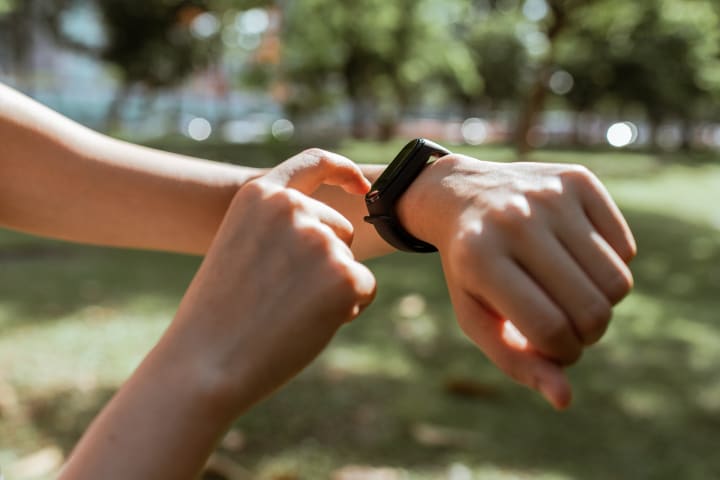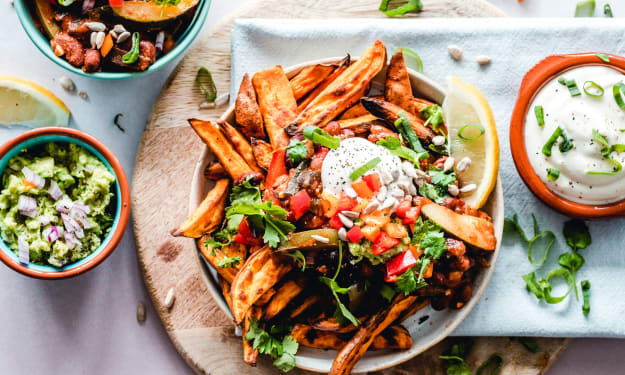What is the paleo diet and what are the benefits associated with eating this way?
A path to better health

Looking to improve your health and overall well-being? If yes, then it might be time to try the paleo diet! This diet (aka the "caveman diet") mimics the dietary patterns of our ancient ancestors, with a focus on eating whole, unprocessed foods like meat, fish, vegetables, fruits, nuts, and seeds.
Related:
As a result, it has gained popularity for its potential to reduce the negative effects of modern-day eating habits for an overall healthier lifestyle. But what exactly are the benefits of eating this way, and are there any potential risks to be aware of? Let’s take a closer look.
1. Improved Digestion
One of the best benefits of going paleo is how it helps to improve your digestion. By filling your body with whole, unprocessed foods, you're providing it with the nutrients it needs for healthy digestion. Plus, cutting out processed foods that are high in sugar, unhealthy fats, and additives can help reduce gut inflammation, which is often a root cause of digestive issues like bloating, constipation, and diarrhea.
2. Healthy weight loss

The paleo diet promotes healthy weight loss without leaving you feeling hungry or deprived. By sticking to nutritious foods that are low in calories, you'll naturally start to eat fewer calories and feel full longer, which leads to losing any extra weight over time.
In addition, the healthy fats and protein of the paleo diet — from foods like beef, fish, avocados, nuts, etc. — are essential for promoting muscle growth, boosting your metabolism, and maintaining an overall healthy weight.
3. Eliminates calorie counting

Counting calories — especially when you want to lose or maintain your weight — is often tedious, time-consuming, and can take the joy out of eating. With the paleo diet, the focus is on the intake of quality foods rather than obsessing over every morsel of food you consume.
So you can finally break free from the cycle of calorie counting and embrace a more intuitive and enjoyable approach to eating that focuses on nourishing your body with wholesome, satisfying meals. And naturally, you’ll maintain a healthy calorie deficit without even thinking about it.
4. Reduced Inflammation
The paleo diet has been linked to reduced inflammation, which is a major factor in a wide range of health issues, including heart disease, diabetes, and certain types of cancer.
Many of the foods that are excluded from the paleo diet, such as refined sugars and processed foods, are known to be inflammatory. By eliminating these foods and replacing them with anti-inflammatory ones like fruits and vegetables, you’ll be fuelling your body to combat inflammation.
5. Better Blood Sugar Control

As mentioned earlier, the paleo diet eliminates refined and processed foods like bread, pasta, and sodas, which tend to cause spikes and crashes in blood sugar levels. By replacing these with fruits, vegetables, and proteins, the paleo diet can help stabilize blood sugar and reduce the risk of conditions like type 2 diabetes.
6. Increased Nutrient Density
One of the biggest advantages of the paleo diet’s nutrient-dense approach is that it can help improve your overall health and well-being. Nutrient-dense foods are linked to better brain function, a stronger immune system, and a lower risk of diseases.
Additionally, eating a paleo diet can help fill any nutrient gaps you may have in your current diet, so your body can get all the nutrients it needs to function properly. For example, if you don't consume enough vitamin C, adding more citrus fruits to your diet can help boost your intake of this essential vitamin.
The Paleo Diet May Not Be for Everyone
Adopting the paleo diet can offer significant health benefits, but it's not all sunshine and rainbows. Some studies suggest that since the paleo diet cuts out certain food groups (eg. legumes, grains, dairy, etc.), it may increase the risk of nutrient deficiencies like calcium, vitamin D, and fiber in the long-term.
While the paleo diet encourages the consumption of healthy fats from sources like avocados and nuts, it can also lead to over-consumption of saturated fats from animal sources like meat and eggs. And too much saturated fat could potentially increase your risk for heart disease.
Conclusion
Ultimately, whether or not the paleo diet is right for you will depend on a variety of factors, including your personal health goals, lifestyle, and preferences. Before making any major changes to your diet, a consultation with a registered dietitian or healthcare provider can help you make the best decision for your health.
Thanks for reading! You can read my previous article here:
About the Creator
Neve Blair
Neve Blair is a writer and adventurer who enjoys exploring the world and all that it has to offer. She loves learning about new cultures, trying different foods, and practicing healthy living habits.






Comments
There are no comments for this story
Be the first to respond and start the conversation.